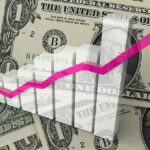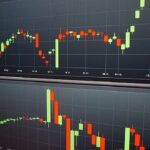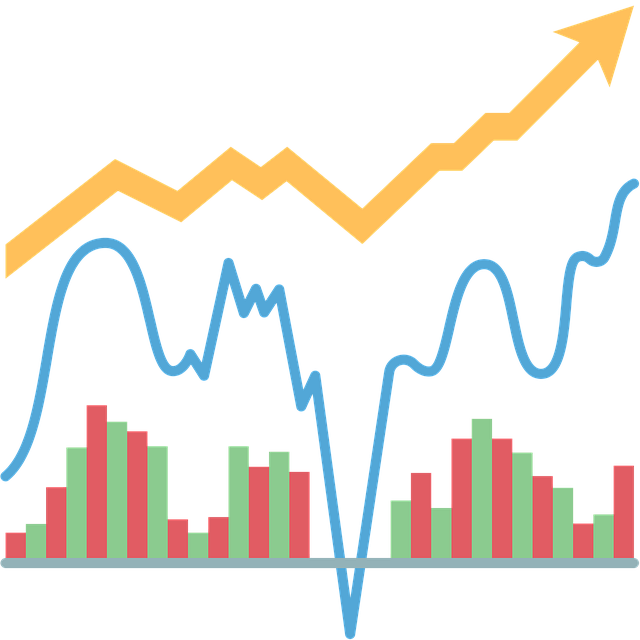I spend my days analyzing the ever-changing landscape of global geopolitical events and their potential impact on currency markets. From trade disputes to political upheaval, every major event has the potential to send ripples through the forex market, affecting everything from exchange rates to investor sentiment.
Given the interconnectedness of our global economy, it’s impossible to ignore the impact of geopolitical events on forex trading.
In this article, we’ll explore some of the most significant examples of how political and economic turmoil can affect currency markets and what traders can do to stay ahead of the curve.
Whether you’re an experienced trader or just getting started in forex, understanding these trends is crucial for success in today’s fast-paced financial landscape.
The Role Of Politics In Forex Markets
 It is crucial to understand the role of politics in the forex markets. Political instability can have a significant impact on currency values. When there is political unrest in a country, investors tend to pull their money out of that country’s economy, causing its currency to weaken.
It is crucial to understand the role of politics in the forex markets. Political instability can have a significant impact on currency values. When there is political unrest in a country, investors tend to pull their money out of that country’s economy, causing its currency to weaken.
On the other hand, when there is political stability, investors are more likely to invest in that country’s economy, leading to an appreciation of its currency. Government interventions are another factor that can affect forex trading. Governments may intervene in their currency markets by buying or selling their own currencies in significant amounts to influence their value.
For example, if a government wants to make its exports more competitive, it may sell large amounts of its currency on the foreign exchange market to decrease its value against other currencies. Political events such as elections and policy changes can also have a significant impact on forex trading. The outcome of an election or a change in government policy can create uncertainty and cause volatility in currency markets.
Traders must constantly monitor political events around the world and adjust their trading strategies accordingly. In conclusion, political instability and government interventions are crucial factors that affect forex trading. It is essential to keep abreast of global political events and understand how they can impact currency values.
By doing so, traders can make informed decisions about when to buy or sell currencies and minimize risks associated with geopolitical uncertainties.
Economic Turmoil And Currency Fluctuations
The forex market is constantly influenced by a plethora of geopolitical events. One such event that can lead to significant fluctuations in currency pairs is an economic crisis.
A financial crisis can create extreme market volatility, leading investors to sell off their assets, including currencies, in an attempt to minimize losses. This can cause the value of a particular currency to plummet rapidly.
The 2008 global financial crisis is an example of how economic turmoil can affect forex trading. The US dollar, which had been the world’s dominant reserve currency for decades, lost its value significantly as investors moved their money out of the country. Investors instead gravitated towards ‘safe haven’ currencies like the Japanese yen and Swiss franc. As a result, these currencies appreciated in value while others suffered.
Market volatility is another consequence of economic crises that affects forex trading. Volatility refers to the degree of fluctuation in a currency’s exchange rate over time. During times of economic turmoil, market volatility tends to increase as investors try to minimize their risks and protect their investments. This means that sudden shifts in exchange rates become more common, making it difficult for traders to predict future movements accurately.
In conclusion, economic crises have a significant impact on forex trading as they lead to currency fluctuations and increased market volatility. Traders must remain vigilant during these times and be prepared for sudden shifts in exchange rates. By staying up-to-date with the latest news and using risk management strategies effectively, traders can mitigate some of the risks associated with economic turmoil and profit from this ever-changing market environment.
Trade Disputes And Their Effect On Exchange Rates
As we discussed in the previous section, economic turmoil can have a significant impact on currency fluctuations. However, there are other geopolitical events that traders need to keep an eye on.
One such event is trade disputes between nations, which can also affect foreign exchange rates. Trade disputes occur when countries impose tariffs or other restrictions on imported goods from other nations. This can result in a decrease in demand for the affected country’s currency and lead to devaluation of their currency.
Traders need to be aware of these disputes and adjust their risk management strategies accordingly. In addition, long-term investments can also be impacted by trade disputes. When investors lose confidence in a particular country’s economy due to trade tensions, they may move their investments elsewhere. This could lead to a decrease in demand for that country’s currency, resulting in its depreciation against other currencies.
Therefore, it is crucial for forex traders to stay up-to-date with any ongoing trade disputes and incorporate this information into their trading strategies. By carefully analyzing the situation and adapting their approach accordingly, traders can mitigate risks and maximize profits even during times of uncertainty.
Instead of concluding with a traditional sign-off phrase like ‘in conclusion’ or ‘finally,’ I urge all forex traders to take caution when dealing with geopolitical events such as trade disputes. These events require careful consideration and strategic planning for long-term success in forex trading.
How To Stay Informed And Adapt To Geopolitical Changes
Staying informed on geopolitical changes is crucial for forex traders. Changes in political leadership, international trade agreements, and conflicts can all have a significant impact on currency values. As such, it’s important to keep up-to-date with the latest news sources and market analysis.
One way to stay informed is to subscribe to reputable news sources that cover international affairs. These sources may include traditional news outlets such as CNN or BBC, as well as specialized publications like The Economist or Foreign Affairs. Forex traders should also consider subscribing to newsletters from financial institutions that provide regular updates on global events.
In addition to staying informed through news sources, forex traders should also be adept at analyzing market trends and indicators. This includes monitoring currency exchange rates, following economic reports and forecasts, and paying attention to key events such as elections or summits.
By combining this information with an understanding of historical trends and patterns, traders can better anticipate how geopolitical events may impact currency values. Adapting quickly to geopolitical changes is also essential for forex traders.
This means being prepared to adjust trading strategies in response to sudden shifts in market conditions or unexpected political developments. Traders should be ready to exit positions quickly if necessary, while also being flexible enough to take advantage of new opportunities that arise during times of volatility.
By staying informed and nimble in their approach, forex traders can position themselves for success even in the face of geopolitical uncertainty.
Strategies For Successful Forex Trading Amidst Global Uncertainty
Effective trading in the forex market requires a thorough understanding of global events and their impact on currency exchange rates. With geopolitical uncertainty on the rise, traders need to be adept at managing risk and analyzing market trends to make informed decisions.
Here are some strategies that can help you navigate the fluctuations of the forex market during times of global uncertainty.
1. Keep an Eye on Economic Indicators: Economic indicators such as inflation rates, employment figures, and GDP growth can all have a significant impact on currency values. Keeping tabs on these indicators can help you stay ahead of trends in the market and make more informed trading decisions.
2. Diversify Your Portfolio: Diversification is key to managing risk in any investment portfolio, and forex trading is no exception. Spread your investments across different currencies, sectors, and asset classes to minimize your exposure to any one sector or asset.
3. Use Stop Loss Orders: Stop loss orders are a valuable tool for managing risk in forex trading. These orders automatically sell a currency when it reaches a pre-determined price, helping you avoid potentially damaging losses.
4. Stay Informed: Staying up-to-date with news and developments around the world is crucial for successful forex trading. Follow major news outlets, financial blogs, and social media channels to stay abreast of global events that could impact currency values.
By implementing these strategies for risk management and market analysis into your trading plan, you can position yourself for success amidst global uncertainty. Remember that being prepared and informed is key to making sound decisions in the volatile world of forex trading.
Frequently Asked Questions
What Is The Impact Of Geopolitical Events On The Forex Market?
Political instability and government policies are two major factors that can greatly affect the forex market. It is important to closely monitor these events and their potential impact on currency values.
Political instability, such as civil unrest or political turmoil, can cause investors to lose confidence in a country’s economy and currency, leading to a decline in its value against other currencies.
Similarly, changes in government policies can also have a significant impact on forex trading. For example, trade restrictions or changes in interest rates can cause fluctuations in currency values.
Therefore, it is crucial for traders to stay informed about geopolitical events and be prepared to make quick decisions based on their potential effects on the forex market.
How Does Economic Turmoil Affect Currency Fluctuations?
Investor sentiment and central bank policies are two major factors that can significantly affect currency fluctuations during times of economic turmoil.
When investors lose confidence in the stability of an economy, they may start to withdraw their investments, leading to a decrease in demand for that currency and a subsequent drop in its value.
Central bank policies, such as interest rate changes or quantitative easing, can also impact currency values by either increasing or decreasing investor confidence.
It’s important to closely monitor these indicators and stay informed about any potential shifts in investor sentiment or central bank policies that could impact the markets.
What Is The Effect Of Trade Disputes On Exchange Rates?
It is important to understand the effect of trade disputes on exchange rates.
Trade negotiations and tariff policies can greatly impact currency fluctuations. When countries impose tariffs on each other’s goods, it reduces demand for those products and ultimately weakens the value of that country’s currency.
In addition, the uncertainty surrounding trade negotiations creates volatility in the forex market as investors are unsure about how these policies will affect global trade and economic growth.
As such, it is crucial to monitor these developments closely to make informed trading decisions.
How Can Traders Stay Informed And Adapt To Geopolitical Changes?
To stay ahead of the game in forex trading, it is crucial for traders to stay informed and adapt to geopolitical changes.
Real time updates and expert analysis can provide valuable insights into the market and help traders make informed decisions.
Additionally, using historical data to analyze patterns and trends can help identify potential opportunities and risks.
It is important to constantly monitor geopolitical events and their potential impact on the market in order to adjust trading strategies accordingly.
What Are Some Strategies For Successful Forex Trading Amidst Global Uncertainty?
One must always be prepared to navigate through global uncertainty.
The question is, what strategies can traders employ to ensure success amidst such unpredictable times?
The key lies in effective risk management and the use of technical analysis.
By implementing stop-loss orders and limiting leverage, traders can minimize their exposure to potential losses.
Additionally, incorporating technical analysis tools such as trendlines and moving averages can provide valuable insights into market trends and potential price movements.
While global events may cause volatility in the markets, utilizing these strategies can help traders stay ahead of the curve and make informed decisions that ultimately lead to profitable outcomes.
Conclusion
It is imperative to understand the impact of geopolitical events on the market. Economic turmoil and trade disputes can cause significant fluctuations in currency exchange rates. For instance, the ongoing US-China trade war has resulted in the Chinese yuan weakening against the US dollar.
Staying informed and adapting to changes is crucial for successful forex trading amidst global uncertainty. The ability to recognize patterns and anticipate market movements is key. As Warren Buffett once said, ‘Price is what you pay; value is what you get.’ Traders should focus on identifying undervalued currencies that have strong fundamentals and potential for growth.
In conclusion, navigating the forex market during geopolitical upheavals requires a combination of knowledge, strategy, and adaptability. By staying ahead of the curve and employing smart trading techniques, traders can weather even the most turbulent times.
As legendary investor George Soros famously said, ‘The financial markets generally are unpredictable. So that one has to have different scenarios… The idea that you can actually predict what’s going to happen contradicts my way of looking at the market.’








